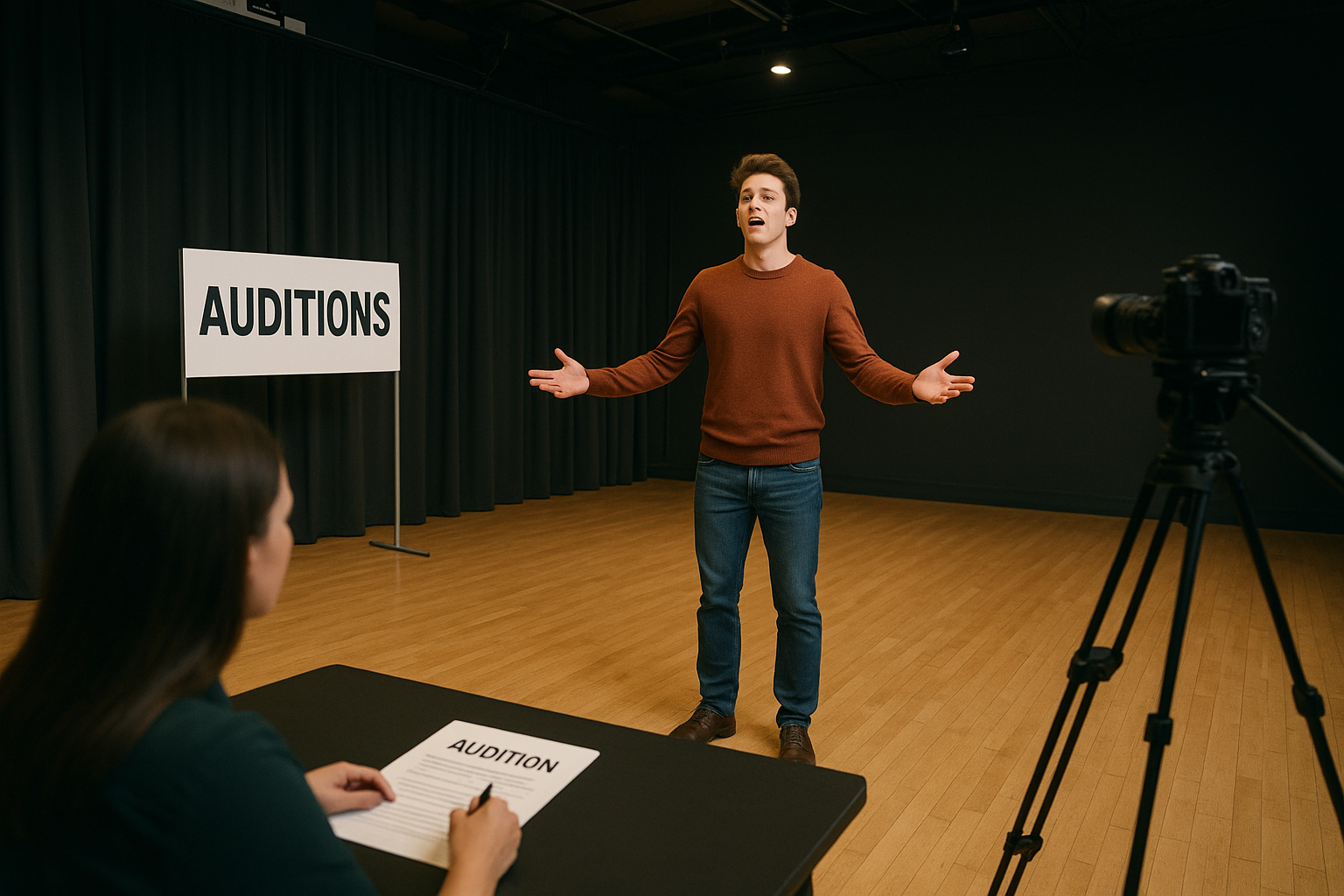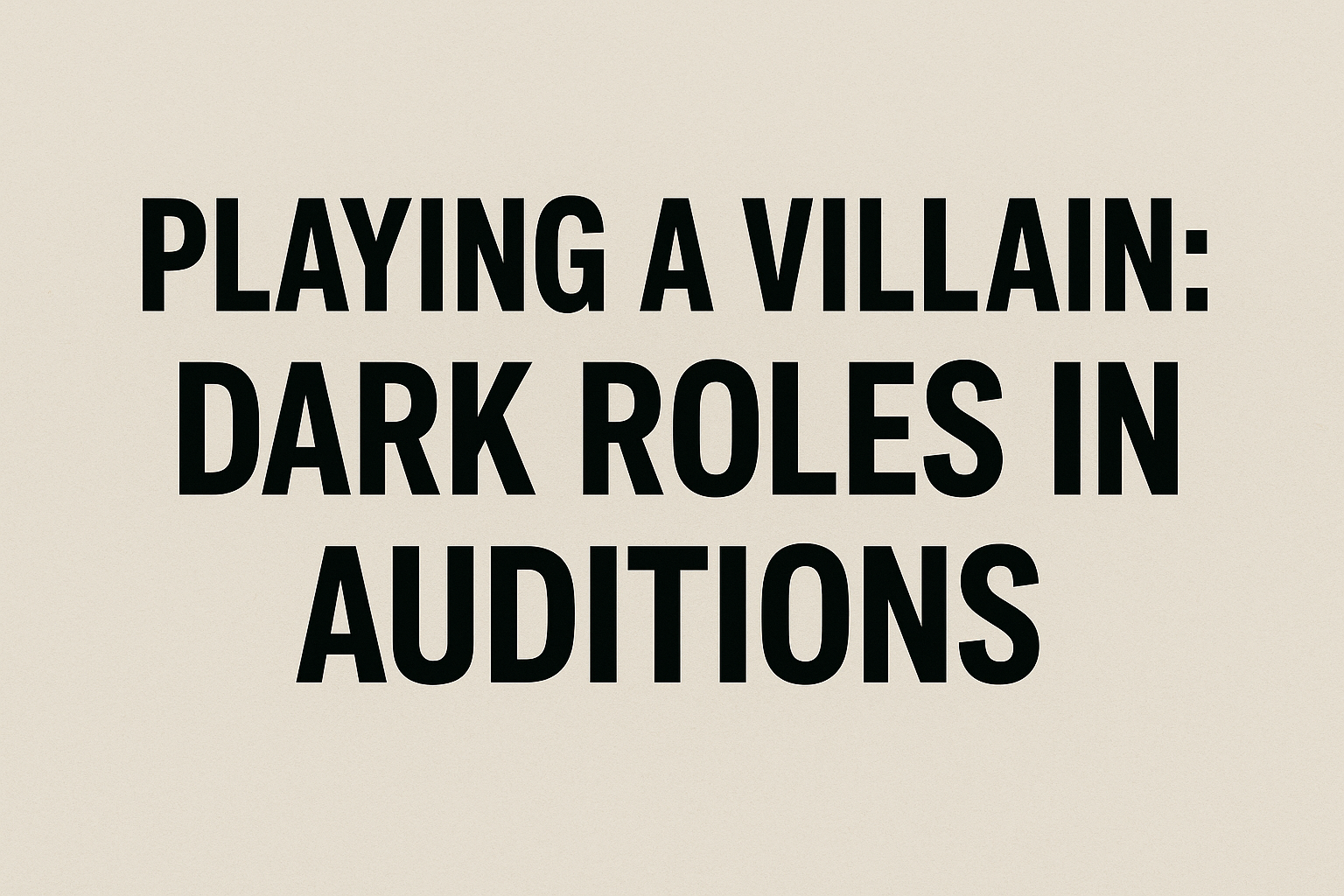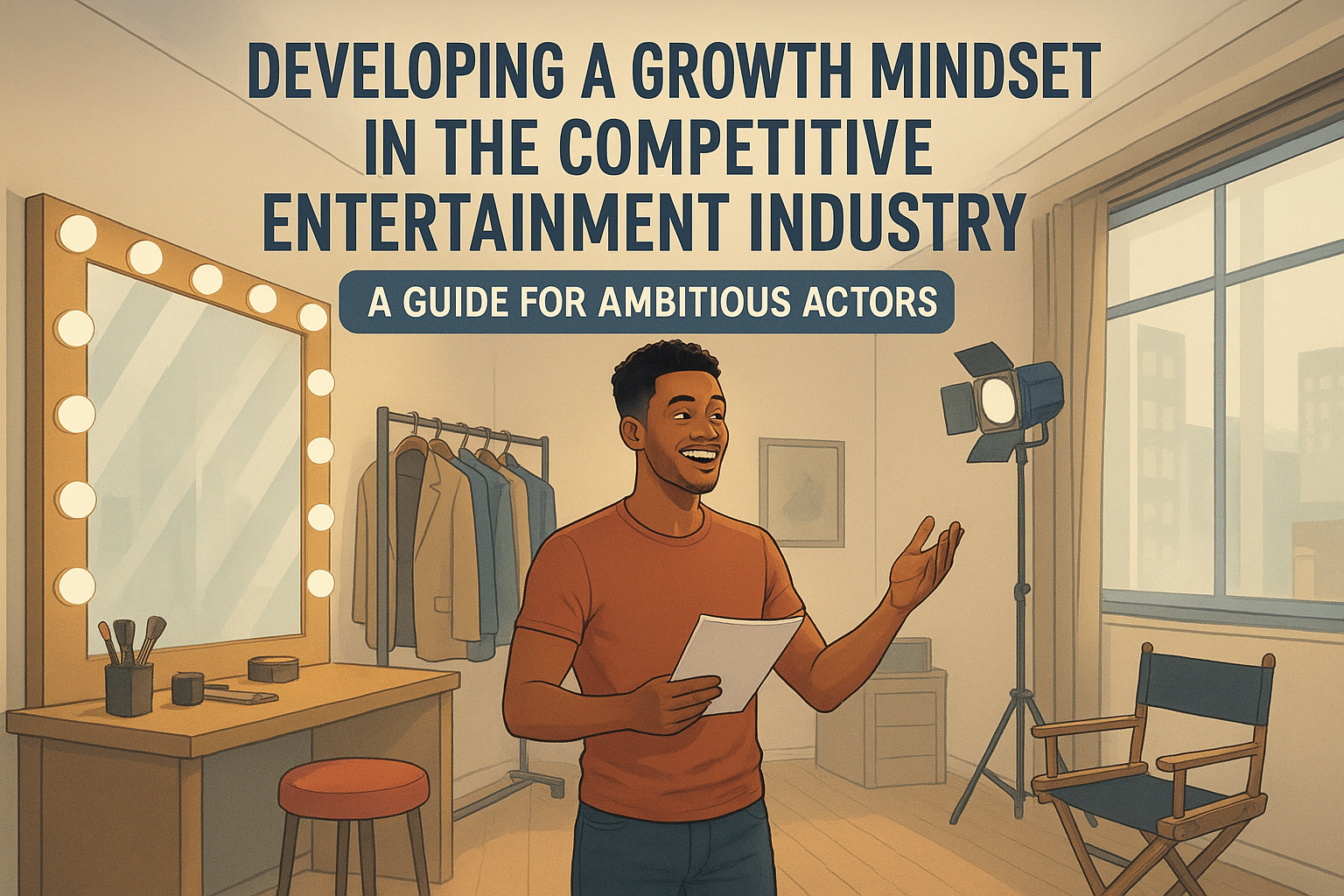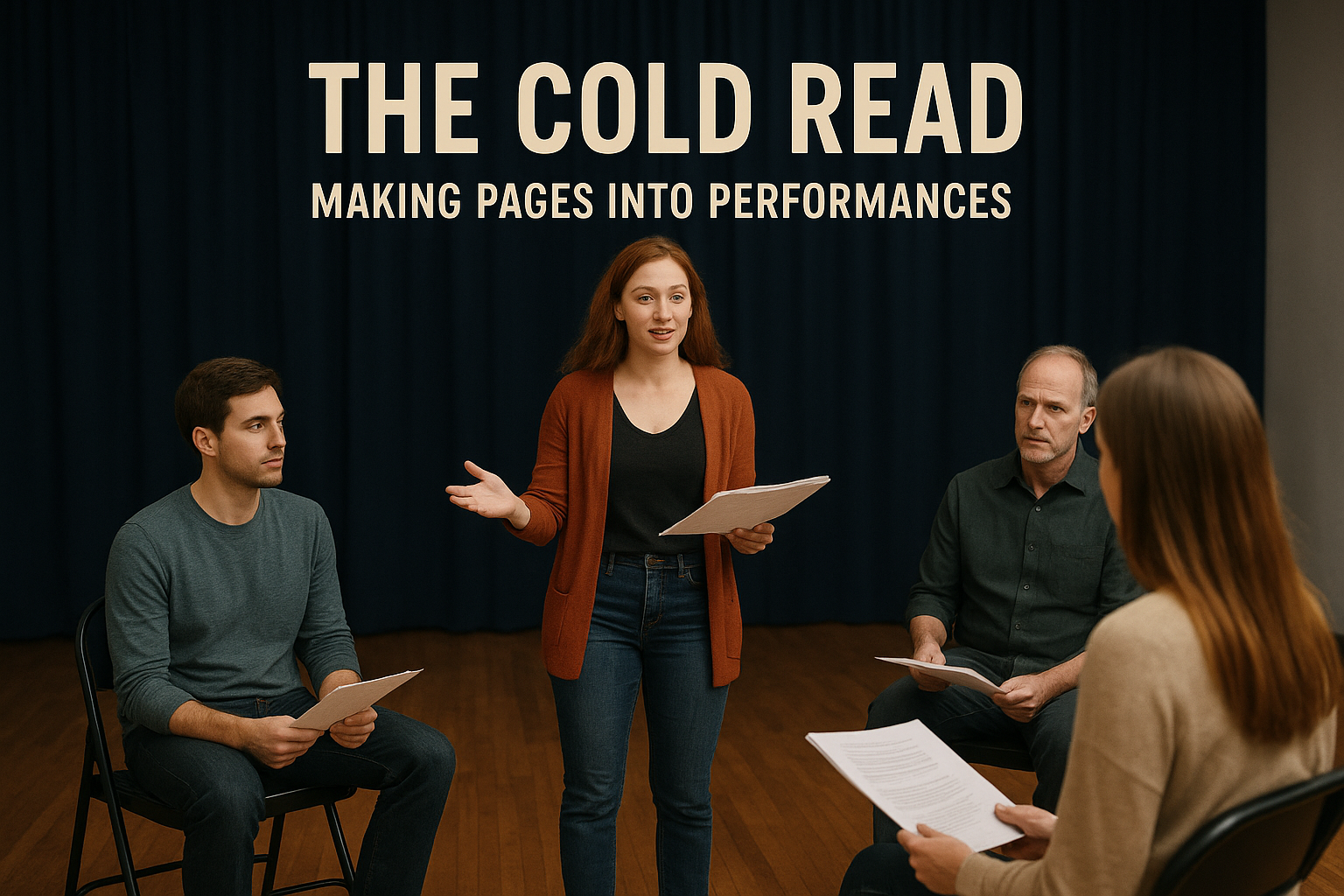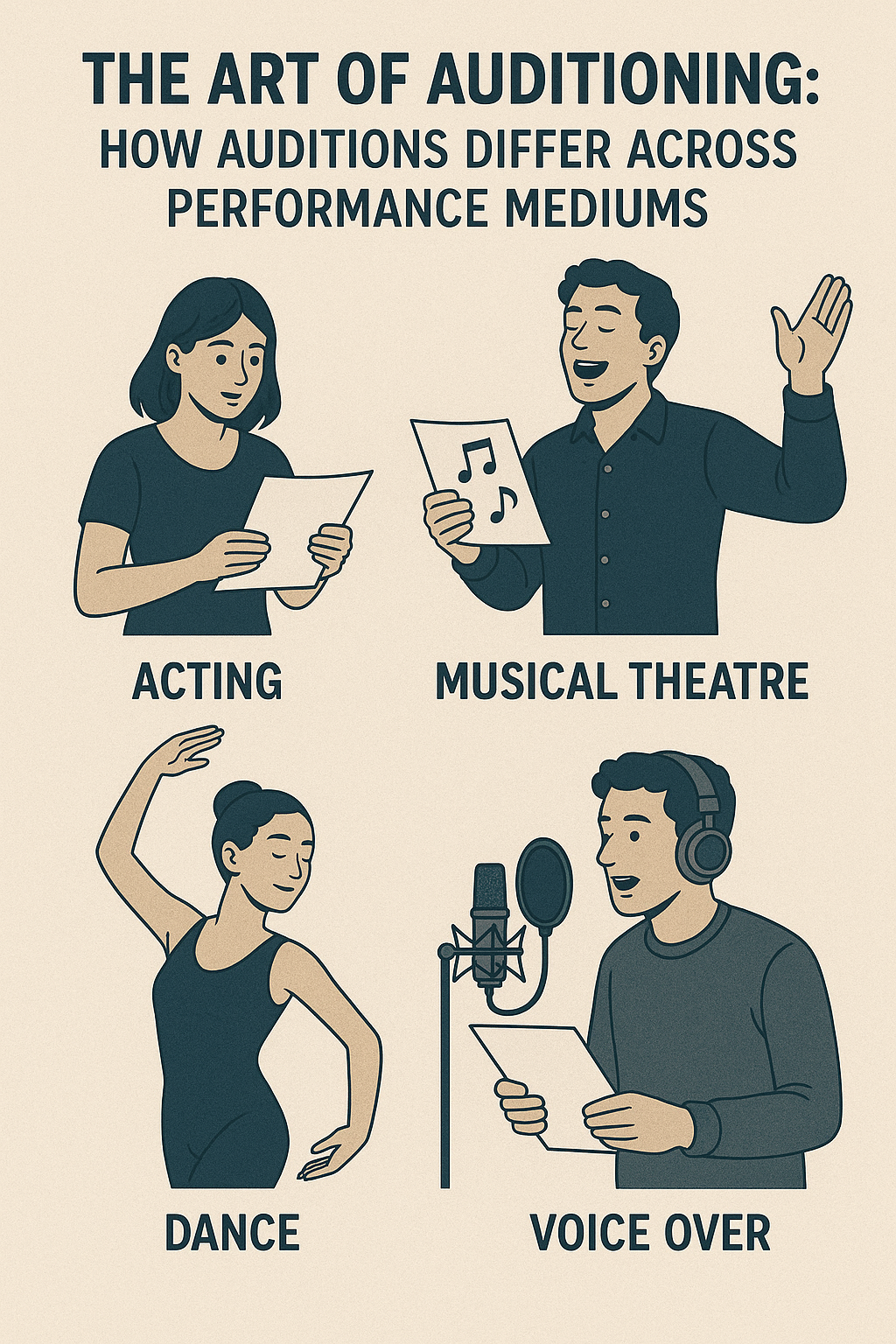
For aspiring performers, auditions are the gateway to opportunity. But not all auditions are created equal. Depending on the medium—whether it’s film, television, theatre, voice-over, or commercials—the process, expectations, and even what casting directors look for can vary significantly. Understanding these differences is crucial for any actor hoping to navigate the industry with confidence and success.
1. Film Auditions: Subtlety Is Key
Auditioning for film is often a more intimate and nuanced experience. The camera captures every flicker of emotion, so the performance needs to be subtle and authentic. Overacting can be detrimental here. Typically, actors are given “sides” (a portion of the script) to prepare, and casting often happens through taped submissions or in-person readings.
Film auditions may also include multiple callbacks and chemistry reads with other actors to test how well performers work together on screen. Directors look for emotional depth, naturalism, and the ability to maintain continuity between takes.
2. Television Auditions: Speed and Precision
Television casting tends to move faster than film. With tight production schedules, decisions are made quickly. Actors are expected to learn lines quickly and adapt on the fly. The tone can vary greatly depending on the show—whether it’s a single-camera drama, a multi-camera sitcom, or a procedural—so understanding the genre is key.
Television performances also need to be camera-friendly but slightly heightened compared to film. Especially in comedies, timing and delivery play a major role. Because many shows have ensemble casts, chemistry and the ability to “fit the world” of the show are critical factors.
3. Theatre Auditions: Presence and Projection
Stage auditions are a different beast altogether. Here, it’s about presence, voice projection, and engaging with a live audience (even if it's just the casting panel). Performers need to fill a space with their energy, often without the benefit of microphones.
Monologues are common in theatre auditions, as are cold readings or singing segments for musicals. Directors look for strong diction, emotional commitment, and the ability to transform into character without the help of camera angles or editing. Rehearsal processes are longer in theatre, so directors also consider how well an actor will work in a collaborative, live-performance environment.
4. Voice-Over Auditions: It’s All in the Voice
Voice-over work requires a completely different skill set. Since the audience won’t see the performer, every bit of emotion, intention, and personality must come through in the voice. Auditions often involve reading from a script into a microphone, and these days, many VO auditions are done remotely from home studios.
Actors must have excellent vocal control, clarity, and the ability to take direction quickly. Whether it’s for animation, video games, audiobooks, or commercials, voice-over actors need to create entire worlds using just their voice.
5. Commercial Auditions: Personality First
Commercial casting tends to focus more on personality and appearance than on deep acting chops. These auditions often happen quickly and can be very brief. Sometimes, actors are asked to slate (say their name and details) and perform a short, often improvised scenario.
Commercials are about selling a product or feeling, so casting directors look for authenticity, a natural look, and how relatable an actor seems. Often, commercial auditions emphasize non-verbal cues, expressions, and even comedic timing.
In Conclusion
Each medium of performance has its unique demands and audition processes. The best actors are those who can adapt their skills accordingly—projecting powerfully for stage one day and delivering quiet intensity for film the next. Understanding the expectations of each format not only helps performers prepare more effectively but also increases their chances of landing roles that suit their strengths. After all, in the diverse world of acting, versatility and preparation are the keys to unlocking opportunity.
Acting may be an art, but in the world of professional performance, it begins long before the cameras roll or the stage lights shine. It begins with the audition — the often nerve-wracking, unpredictable process that determines whether an actor even gets the chance to perform. For aspiring actors, understanding the relationship between auditioning and acting is not just important — it's essential. One feeds into the other, and together, they shape an actor’s growth, resilience, and ultimate success.
When it comes to acting, playing a villain is considered a challenge and a golden chance. Villains are multilayered, multi-dimensional, and probably the most remembered characters in a narrative. Be it old Bollywood films such as Gabbar Singh from Sholay or OTT villains such as Guruji from Sacred Games, dark roles determine an actor's fate. But auditioning for a villain is an altogether different. It needs a firm grasp of psychology, body language, and emotional regulation. If you're a newbie or a seasoned actor wanting to master your craft, this blog will walk you through all that you need to know on how to audition for villainous roles.
In the high-stakes, emotionally demanding world of acting, rejection is frequent, uncertainty is constant, and comparison can feel unavoidable. The entertainment industry is as competitive as it gets—and in such an environment, your mindset can make or break your journey. While talent, networking, and luck all play their part, there's one internal tool that can drastically shift your trajectory: a growth mindset.
There is a moment every actor fears: the casting director places a script in your hands you've never laid eyes on before and says, "Take a minute, and when you're ready, we'll begin. Welcome to the cold read — perhaps the most unpredictable, yet vital portion of an actor's career. Whether you're auditioning for theater, television, or voiceover, cold reading is the skill that can break or make your chance at a role. But the good news is this: like every other craft, it can be practiced, honed, and eventually mastered. In this post, we will analyze what cold reading actually is, why it's important, and how you can transform a cold script into a warm, breathing performance.
Lights Camera Audition!
Don't miss out on the latest updates, audition calls, and exclusive tips to elevate your talent. Subscribe to our newsletter and stay inspired on your journey to success!




